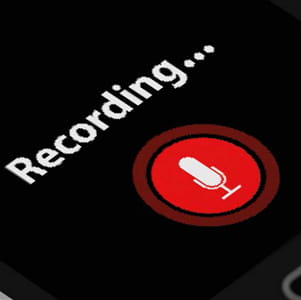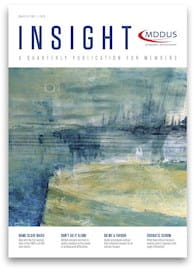
I AM a GP in a suburban practice and a patient recently attended our surgery for advice on an ongoing medical issue. She has in the past expressed dissatisfaction with accepted treatment options, having researched her condition on various websites and online forums. I have now discovered that she has covertly recorded our consultation and posted it on a public Facebook page without my consent. What can I do about this?
In an era of social media this is an increasing concern for many doctors, who must try to balance their duty of confidentiality with a patient’s right of autonomy. Some doctors will feel personally aggrieved to discover a patient is covertly recording a consultation, and worse still to find that it has then been posted online.
Patients record consultations for a number of reasons. They may wish to aid their memory if there is likely to be a complex or lengthy discussion. They may wish to let their family members listen to help clarify matters or keep them informed. Or it may be that they are dissatisfied with the advice they are being given and want to promote their own view in a public forum.
So what can a doctor do about it? The answer lies in considering the type of harm, if any, you have suffered. GPs have privacy and data protection rights in relation to their personal information. However, a consultation is focused on the patient’s medical care and does not require a doctor to disclose any of their own personal data. In this scenario a patient has the right, under existing legislation, to post their information on social media should they wish.
The legal provisions which apply to recording consultations or other contacts include the Data Protection Act 2018 (DPA 2018), the General Data Protection Regulation (GDPR) and the Telecommunications Act 1984. A data subject, in this case the patient, is entitled to their personal information – including the information from a consultation. Once in the hands of the patient, it is at their discretion as to what they do with that data. They are not bound by the same ethical obligations as a doctor and so, if they want to post their consultation on social media, there is no legal prohibition against it.
The Telecommunications Act 1984 requires businesses to inform individuals in advance if calls will be recorded but this does not apply to a patient. As such, there is no legal prohibition to a patient recording a consultation, even covertly.
In terms of regulatory guidance for doctors, the GMC does not provide specific guidance on patients recording consultations – their guidance is focused on a doctor’s obligations if they want to make an audio or visual recording.
It is understandable why you may feel unhappy with a patient recording her consultation and posting it on Facebook. However, it is difficult to take any action against the patient for the manner in which she has handled her own information. You can exercise your own judgement as to whether it would be worth asking the patient to take down the recording but there is no obligation on her to do so.
A possible means to avoid this situation occurring in future is to focus on the relationship with each patient, so they feel able to raise any concerns they may have at the outset of a consultation. A patient who is engaged and reassured is less likely to feel the need to covertly record a consultation.
You might also consider inviting the patient to openly record future consultations in order to positively influence the situation. A gentle question around the perceived need to have a recording may help clarify matters for you and the patient. A request could be made that in the future they at least alert you to this activity but be aware that the patient does not have to comply with this – although demonstrating acceptance and lack of defensiveness may enable the patient to be more open and overt going forward. It is also worth noting that covert recordings are admissible as evidence when judged as relevant to a legal case.
Notwithstanding the above, if a patient states that they do want to record a consultation, you should allow them to do so, but perhaps request a copy of the recording to retain within the medical records. In the event that the consultation discusses third-party information, or might cause serious harm or concern for other reasons, then you should contact MDDUS for further support and assistance.
Dr Naeem Nazem is a medical adviser at MDDUS
This page was correct at the time of publication. Any guidance is intended as general guidance for members only. If you are a member and need specific advice relating to your own circumstances, please contact one of our advisers.
Read more from this issue of Insight

Save this article
Save this article to a list of favourite articles which members can access in their account.
Save to library